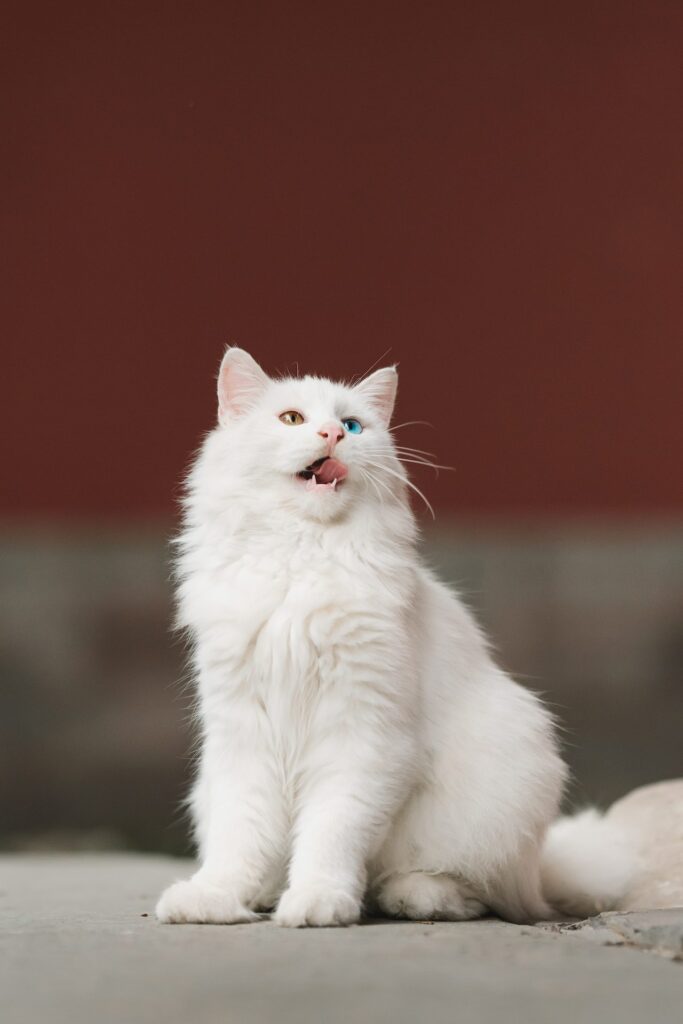Lip Licking in Cats Explained: What Does This Common Cat Behavior Mean?
Do you ever notice your cat licking its lips? Lip licking in cats is a common behaviour that can mean many things. Lip licking can indicate several conditions, from hunger or thirst to stress or pain. In this article, we’ll explore lip licking in cats and discuss its causes and meanings, how to identify lip licking and when it might be time for a trip to the vet. Read on to learn more about lip licking in cats!
Cats are some of the most beloved pets, and their behaviours remain mysterious and intriguing to many owners. One behaviour that cats often display is lip licking, which can mean a variety of things.
What Does Lip Licking Mean?
The lip licking in cats is a sign that they are trying to convey something with their body language. It could be a sign of stress or anxiety, but the cause isn’t always clear. It can also signify excitement or pleasure in conjunction with other behaviours like purring or kneading. In some cases, however, it could also be an attempt to communicate hunger or thirst.
When attempting to decipher why your cat is lip-licking, it’s important to consider the context in which it’s occurring. If your cat seems distressed or anxious, there may be an underlying issue that needs addressing, such as fear or illness. On the other hand, if your cat appears contented when engaging in this behaviour, it’s likely just a sign of pleasure or excitement.
Common Causes
There are several common causes for why cats might engage in lip-licking behaviour:
Stress and anxiety:
Cats can become anxious in response to changes in their environment or if they experience something new and unfamiliar. This stress can manifest through lip licking and other signs such as excessive grooming and hiding away from people and other animals.
Pleasure:
Suppose you notice your cat’s tail swishing back and forth while engaging in lip-licking behaviour. In that case, this could mean they’re feeling happy and contented – this is especially true if you observe them doing it while being petted or given attention by humans or other animals.
Hunger/thirst:
Lastly, cats may lick their lips if they’re feeling hungry or thirsty – so take note of whether they’ve recently eaten before and had access to water during the day before assuming anything else!
Tips for Addressing Lip-Licking Behavior
Once pet owners have identified the cause behind this issue, there are several tips for addressing the behaviour:
Reduce stressors:
If stress is causing your cat to display lip-licking behaviour, try reducing any potential sources of anxiety around them, such as loud noises or unfamiliar people/animals are entering their home environment. Providing plenty of places for them to hide away (e.g., cardboard boxes) can help alleviate feelings of insecurity, while introducing calming products such as pheromone diffusers can help reduce overall anxiety levels too!
Increase positive reinforcement:
Positive reinforcement techniques (i.e., rewarding desired behaviours with treats) can also help reduce lip licking due to fear/anxiety by teaching cats that certain situations aren’t scary after all! Be sure to provide verbal praise and affection, too – cats love getting attention from their owners!
Monitor nutrition/hydration levels:
As mentioned previously, one potential cause could be because your cat is feeling hungry or thirsty – so make sure you’re monitoring their food/water intake closely each day to ensure they’re getting adequate nutrition/hydration levels throughout! You might want to adjust portion sizes accordingly if needed, too (e.g., if they appear particularly active during certain periods).
Conclusion
In conclusion, understanding why cats engage in lip-licking activities is key for providing appropriate care and support – reducing the stress around them through environmental changes or providing additional forms of positive reinforcement when necessary! By tracking what triggers this behaviour, we can better understand our feline friends’ needs more effectively, ultimately making our relationships stronger over time!
If you want to provide your furry friend with the best care and support, why not consider getting them insured with furrr.co.uk? With a range of competitively priced plans available, you can rest assured that your cat is covered for any eventuality – so why wait any longer? Get your pet insured today at furrr.co.uk!










